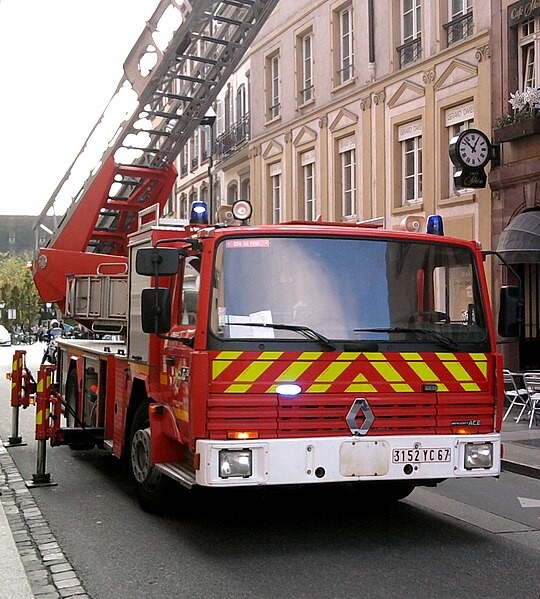

‘Je ne suis pas un assassin’ by Frédéric Chaussoy
- Title ‘Je ne suis pas un assassin’ by Frédéric Chaussoy
- Author Frédéric Chaussoy
- Year 2004
- Language French
- Tags Death Outside the Law Palliative Care High Profile Cases
- Legislative context Loi no 99-477 visant à garantir le droit à l’accès aux soins palliatifs, 1999 (France)
- Author of entry Jordan McCullough
In this short text, Dr Frédéric Chaussoy recounts his version of the events that led up to and followed the 2003 death of Vincent Humbert, a well-known patient in the context of assisted dying debates in France (see Je vous demande le droit de mourir). Chapter by chapter, Chaussoy discusses his first meetings with Vincent and the various members of his family; explains the decision-making process that led to Vincent’s eventual extubation and death; and describes in detail the impact of the whole affair on his own life and those of his family. In this sense, the text calls us to recognise the humanity of the physicians who care for us and to acknowledge the pressure under which they work – particularly in intensive care. Likewise, having been acquitted of any wrongdoing by the French legal system, the text seeks to clear Chaussoy’s name in the court of public opinion (as the title of the text suggests), by offering a reasoned justification of his actions and presenting the full complexity of the medico-ethico-legal situation in which he found himself.
With a preface by Bernard Kouchner, former physician turned politician, health secretary who introduced formalised palliative care services in France, and supporter of the legalisation of assisted dying, Je ne suis pas un assassin is clearly a politically engaged text. It calls for change in the existing legal framework, while drawing attention to the unspoken – and seemingly frequent – cases of physician-assisted dying that occur in hospitals across France. Indeed, Chaussoy suggests that the only reason he became legally implicated in the Humbert case was the fact that he dared to speak openly about his role in assisting Vincent’s death. Offering vital insights from the much-neglected perspective of a physician, the text calls its readers – and wider French society – to further develop and improve existing end-of-life care provision and to better support the patients for whom an assisted death is their desired form of end-of-life care, together with the physicians who care for them.
Suggested citation
-
Je ne suis pas un assassin, Assisted Lab’s Living Archive of Assisted Dying, August 2024 <link>
Media citations
- Pascale Egré, Dr Fréderic Chaussoy : ‘Comme moi, Nicolas Bonnemaison a fait son boulot’, Le Parisien, 2014 → leparisien.fr
- Procès Bonnemaison : ‘Ce n’est pas à la justice de régler ces problèmes’, Le Point, 2014 → lepoint.fr
- Sandrine Blanchard, Marie Humbert dénonce ‘l’hypocrisie de la justice’ sur l’euthanasie, Le Monde, 2006 → lemonde.fr
- Nathalie Simon, Le combat d’une mère pour son fils, Le Figaro, 2007 → lefigaro.fr
- Jon Henley, This is not a life. I can lead it no more, The Guardian, 2003 → theguardian.com
Legal and Paralegal citations
- Rapport fait au nom de la commission des affaires sociales sur la proposition de loi relative à l’euthanasie et au suicide assisté, pour une fin de vie digne, Assemblée nationale, no 582, 24 January 2018 → assemblee-nationale.fr
- Rapport fait au nom de la commission des affaires sociales sur la proposition de loi visant à renforcer les droits des patients en fin de vie, Assemblée nationale, no 970, 17 April 2013 → assemblee-nationale.fr
- Compte rendu du débat du 25 janvier 2011 sur l’assistance médicalisé pour mourir, Sénat, 25 January 2011 → senat.fr
- Rapport d’information fait au nom de la mission de d’évaluation de la loi no 2005-370 du 22 avril 2005, Assemblée nationale, no 1287, 28 November 2008 → assemblee-nationale.fr
Related Media
Documentary Film
Euthanasie: un choix qui divise
- Euthanasie: un choix qui divise film-documentaire.fr ↗
Related Archival Entries
'Je vous demande le droit de mourir' by Vincent Humbert

Vincent Humbert (with Frédéric Veille)
Following a life-changing accident, which left Vincent Humbert paraplegic, blind and mute, the young man decided that he wanted to end his life and wrote to the French President in search of help. This text is his story, one of the most significant in the history of the assisted dying debate in France.